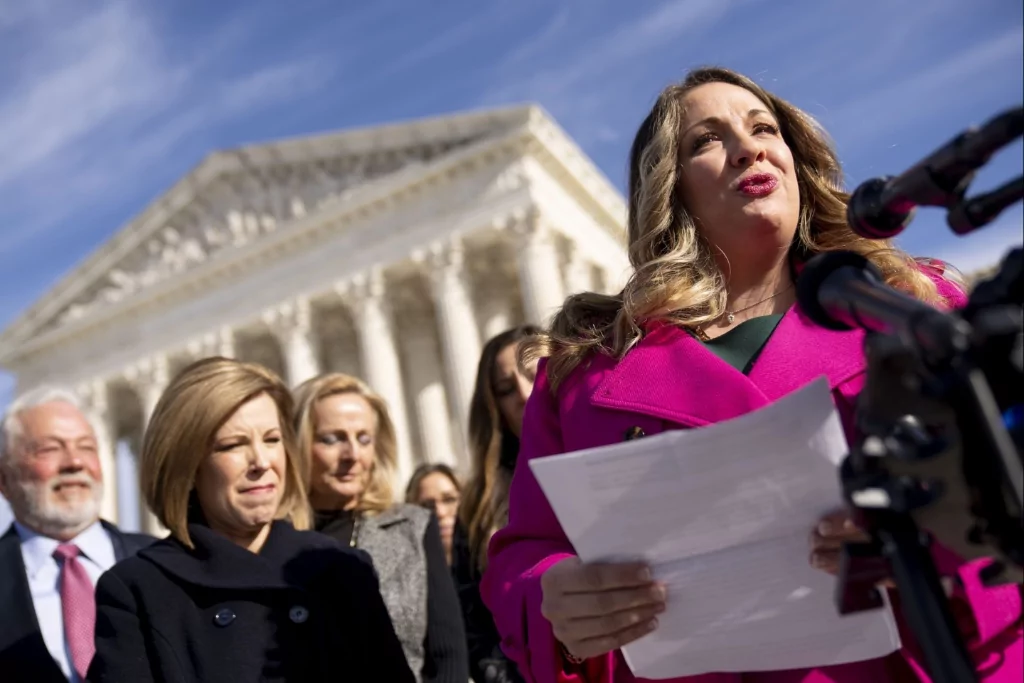
Colorado officials have agreed to pay over $1.5 million to cover attorney fees for graphic designer Lorie Smith, who successfully challenged the state’s antidiscrimination law at the Supreme Court.
The settlement, announced Tuesday, comes months after the high court ruled in 303 Creative LLC v. Elenis that Colorado violated Smith’s First Amendment rights by attempting to compel her to create wedding websites for same-sex couples against her religious beliefs. Earlier this year, a federal district court issued a final judgment requiring state officials to cease efforts to compel Smith’s speech, a resolution that brought an end to years of legal and personal hardship.

“After enduring Colorado’s censorship for nearly seven years, I’m incredibly grateful for the work of my attorneys at Alliance Defending Freedom to bring my case to victory,” Smith said, referring to the religious liberty law firm that represented her. “As the Supreme Court said, I’m free to create art consistent with my beliefs without fear of Colorado punishing me anymore.”
Under the terms of the settlement, Colorado’s Civil Rights Division agreed to pay the hefty legal costs of Smith’s attorneys from Alliance Defending Freedom, a legal advocacy group specializing in religious liberty cases. ADF President Kristen Waggoner described the payout as a necessary consequence of the state’s actions.
“For the past 12 years, Colorado has targeted people of faith and forced them to express messages that violate their conscience and that advance the government’s preferred ideology,” said Waggoner, adding that “billions of people around the world” believe marriage is the union between a man and a woman, and that “First Amendment protections are non-negotiable.”
Lawyers spent nearly a decade arguing in court that Colorado’s enforcement of its public accommodations law against Smith constituted a form of compelled speech. After the justices agreed to consider the case on the merits, the Supreme Court’s 6-3 decision in June last year affirmed her claim, holding that the state’s actions infringed upon her constitutional right to free expression.
Justice Neil Gorsuch, the author of the 303 Creative decision, wrote that through its public accommodation law, “Colorado seeks to force an individual to speak in ways that align with its views but defy her conscience about a matter of major significance.”
The Supreme Court’s majority ruling was met with swift dissent by the three Democratic-appointed justices, including a dissent by Justice Sonia Sotomayor accusing the ruling of granting “business open to the public a constitutional right to refuse to serve members of a protected class.”
However, Smith has argued her free speech case was never about rejecting clients based on their identity but about making sure her custom website business does not create designs or promote messages that do not conform to her religious beliefs.
“This is a win not just for me but for all Americans — for those who share my beliefs and for those who hold different views. I love people and work with everyone, including those who identify as LGBT,” she said.
The settlement follows a contentious history of Colorado officials enforcing antidiscrimination measures against religious business owners. Smith’s lawsuit drew comparisons to the earlier Masterpiece Cakeshop case, in which the Supreme Court sided with baker Jack Phillips, who refused to create a custom cake for a same-sex wedding.
CLICK HERE TO READ MORE FROM THE WASHINGTON EXAMINER
Critics have accused Colorado of selectively targeting religious individuals, a claim bolstered by comments from state officials during litigation that suggested hostility toward faith-based beliefs. Smith’s attorneys argued that these patterns highlighted the need for stronger protections against government overreach.
The Washington Examiner contacted the Colorado Civil Rights Division for comment.






